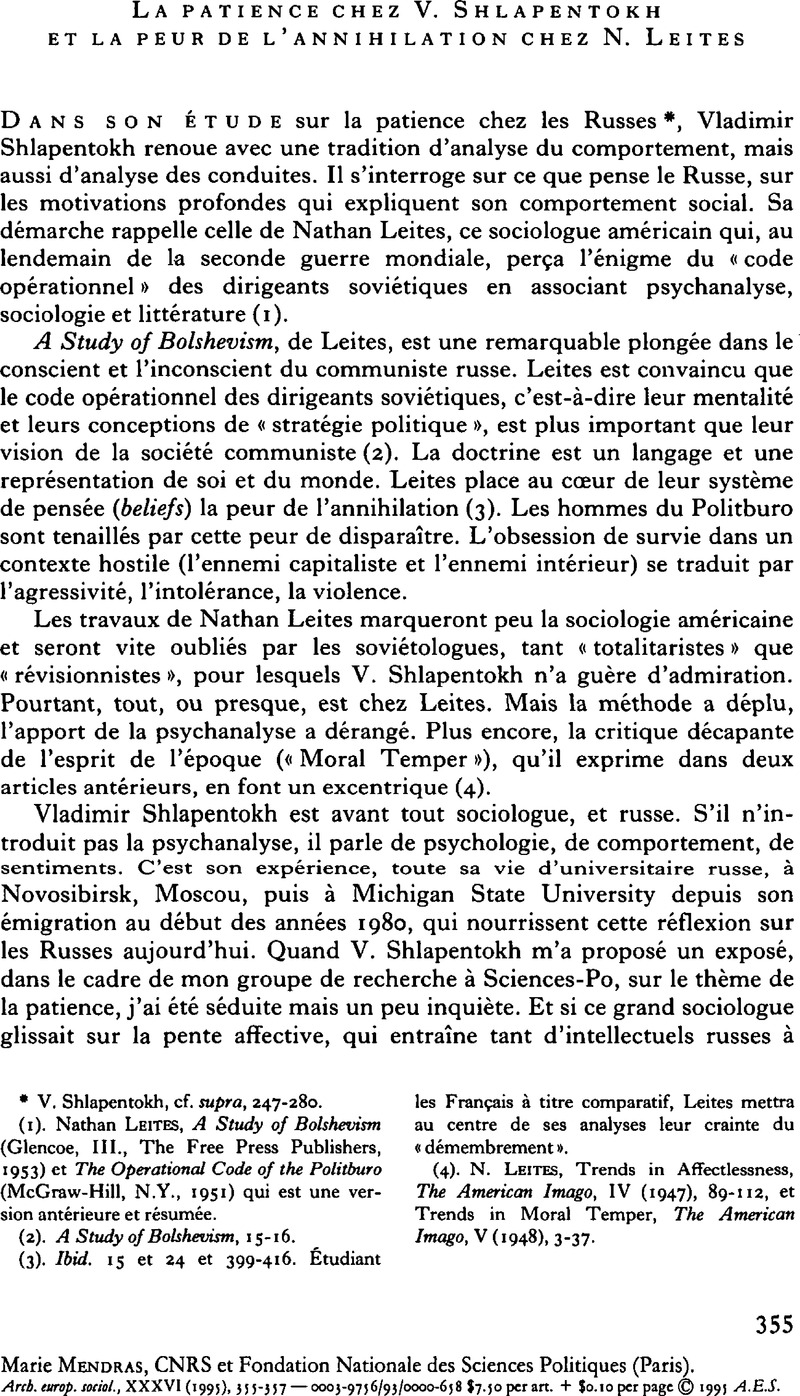No CrossRef data available.
Article contents
La patience chez V. Shlapentokh et la peur de l'annihilation chez N. Leites
Published online by Cambridge University Press: 28 July 2009
Abstract

- Type
- Notes Critiques
- Information
- European Journal of Sociology / Archives Européennes de Sociologie , Volume 36 , Issue 2 , November 1995 , pp. 355 - 357
- Copyright
- Copyright © Archives Européenes de Sociology 1995
References
* V. Shlapentokh, cf. supra, 247–280.
(1). Leites, Nathan, A Study of Bolshevism (Glencoe, III., The Free Press Publishers, 1953)Google Scholar et The Operational Code of the Politburo (McGraw-Hill, N.Y., 1951)Google Scholar qui est une version antérieure et résumée.
(2). A Study of Bolshevism, 15–16.
(3). Ibid. 15 et 24 et 399–416. Étudiant les Français à titre comparatif, Leites mettra au centre de ses analyses leur crainte du « démembrement ».
(4). Leites, N., Trends in Affectlessness, The American Imago, IV (1947), 89–112Google Scholar, et Trends in Moral Temper, The American Imago, V (1948), 3–37.Google Scholar
(5). ‘Affectlessness is here not only a defense against the various phantasied dangers of involvement but also an instrument of aggression against (and contempt for) those persons who expect a fuller response from the hero’, Trends in Affectlessness, op. cit., p. 97.


